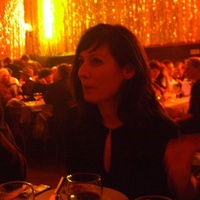Energy Futures: Five Dilemmas of the Practice of Anticipatory Governance
Environmental Communication: A Journal of Nature and Culture, 2012
Public participation has become standard practice in both environmental communication and science... more Public participation has become standard practice in both environmental communication and science and technology studies, with such engagement increasingly moving “upstream” to the early stages of technological development. One framework for these activities is anticipatory governance, in which foresight and public and stakeholder engagement are used to reflect on—and direct—the impacts of new technology. In this essay we draw on our experience of anticipatory governance, in the shape of the “NanoFutures” project on ...











Uploads
Papers by Cynthia Selin
The text appears online as part of the forthcoming book Climates: Architecture and the Planetary Imaginary, published by the Avery Review and Lars Müller Publishers, 2016
mindsets that seek to calculate incalculable futures. Plausibility is an undertheorised
and illusive concept yet one that critically moves beyond a search for
a factual encounter with the future. While not assuming that plausibility will
unproblematically lift policy making and technology assessment from failures
of both imagination and prediction, teasing apart the tensions latent in the
concept is helpful and timely. The articles in this special issue ask: is
plausibility another mode of relating to the future that acknowledges an
intrinsically uncertain and contingent future? Does plausibility offer a pathway
away from the pathologies of prediction and probabilistic thinking to create a
more fruitful space to make better decisions? This introductory article describes
the intellectual pursuit of plausibility through a description of the contemporary
conditions that necessitate a revised approach to uncertainty and a historical
account of the rise of probabilistic thinking.
Purpose – The purpose of this paper is to explore extant distinctions between plausibility and
probability in scenario planning and re-frame the either/or stance in the literature within a broader set of
methodological choice possibilities.
Design/methodology/approach – The paper surveys the history of both terms in both the English
language and more narrowly within scenario planning, critically assessing the confusions that have
arisen. The paper questions the distinctions that have been made and offers a richer set of combinations
to open up the methodological space available.
Findings – The paper suggests that the either/or stances that have been dominant in the literature –
and even shaped distinctions between different schools of scenario planning – must be surpassed by a
richer set of combinations that open up new methodological approaches and possibilities.
The text appears online as part of the forthcoming book Climates: Architecture and the Planetary Imaginary, published by the Avery Review and Lars Müller Publishers, 2016
mindsets that seek to calculate incalculable futures. Plausibility is an undertheorised
and illusive concept yet one that critically moves beyond a search for
a factual encounter with the future. While not assuming that plausibility will
unproblematically lift policy making and technology assessment from failures
of both imagination and prediction, teasing apart the tensions latent in the
concept is helpful and timely. The articles in this special issue ask: is
plausibility another mode of relating to the future that acknowledges an
intrinsically uncertain and contingent future? Does plausibility offer a pathway
away from the pathologies of prediction and probabilistic thinking to create a
more fruitful space to make better decisions? This introductory article describes
the intellectual pursuit of plausibility through a description of the contemporary
conditions that necessitate a revised approach to uncertainty and a historical
account of the rise of probabilistic thinking.
Purpose – The purpose of this paper is to explore extant distinctions between plausibility and
probability in scenario planning and re-frame the either/or stance in the literature within a broader set of
methodological choice possibilities.
Design/methodology/approach – The paper surveys the history of both terms in both the English
language and more narrowly within scenario planning, critically assessing the confusions that have
arisen. The paper questions the distinctions that have been made and offers a richer set of combinations
to open up the methodological space available.
Findings – The paper suggests that the either/or stances that have been dominant in the literature –
and even shaped distinctions between different schools of scenario planning – must be surpassed by a
richer set of combinations that open up new methodological approaches and possibilities.